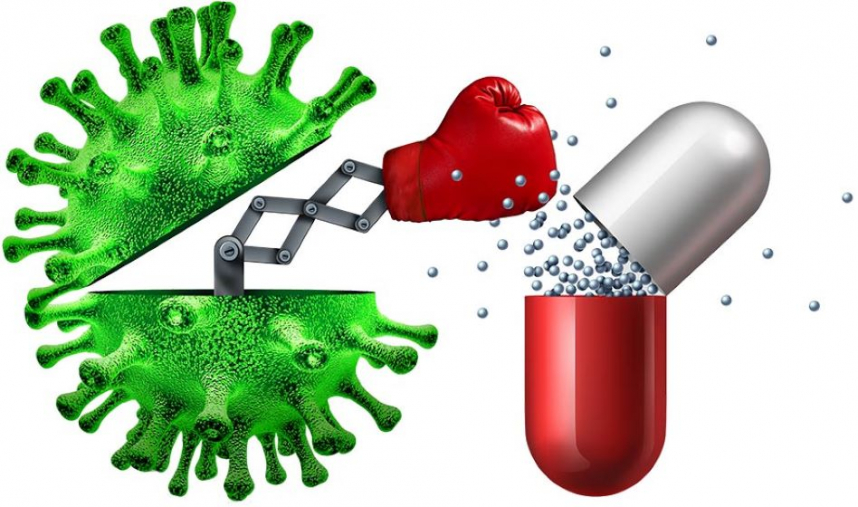05 Apr 2024

Results from an economic study confirm that the already staggering human toll of antimicrobial resistance (AMR) will be compounded by a catastrophic hit to the global economy unless bolder and more urgent action is taken, the Global Leaders Group (GLG) on AMR said today.
AMR is already a leading cause of death globally, directly responsible for 1.27 million deaths annually, one in five of which occur in children under the age of five, mainly in low- and middle-income countries.
Uncontrolled AMR is expected to lower life expectancy and lead to unprecedented health expenditure and economic losses
The economic study shows that without a stronger response there would be an average loss of 1.8 years of life expectancy globally by 2035. The study also estimates that AMR would cost the world US$ 412 billion a year in additional healthcare costs and US$ 443 billion per year in lost workforce productivity.
The tools to tackle AMR exist, but must be dramatically scaled up.
The economic study shows that if implemented globally, a package of cross-sectoral AMR interventions is expected to cost an average of US$ 46 billion per year but will bring a return of up to US$13 for every US$1 spent by 2050.
“We have the tools to mitigate the AMR crisis and these data point to a devastating future if we do not take bolder action now”, says Chair of the GLG on AMR, Mia Amor Mottley, Prime Minister of Barbados. “That is why the Global Leaders Group is making recommendations and proposing targets to drive a robust global response to AMR and save millions of lives.”
The Global Leaders Group calls on UN Member States to act boldly
In a new report released today, the GLG calls on political leaders to make specific commitments at the high-level meeting on AMR to be held at the United Nations General Assembly on 26 September. The GLG report, “Towards specific commitments and action in the response to antimicrobial resistance” urges UN Member States to ensure that adequate, predictable, and sustainable financing is available from domestic and external sources to address AMR, including to tackle the dwindling research and development pipeline for new antibiotics. The GLG proposes that existing financing instruments expand their scope to include AMR and increase investments to support implementation of multisectoral National Action Plans, especially in low- and middle-income countries.
The report notes how accountable, effective, and functional multisectoral governance is critical to coordinate a global response to AMR and successfully implement interventions. To achieve this, the GLG proposes an independent panel be established to monitor and report on science and evidence related to AMR to inform advocacy and action and formalizing the Quadripartite Joint Secretariat to facilitate collaborative and coordinated action against AMR.
The GLG stresses the need for improved quality of data on antimicrobial resistance and use through surveillance and monitoring and recommends that countries strengthen human resources and crucial infrastructure capacity. The report highlights the need for sustainable, sector-specific, and integrated surveillance systems and the use of data for action.
Because prevention is a cornerstone of the response to AMR, the GLG recommends that countries should implement strategies to prevent infections across human and animal health and food, plant, and environmental ecosystems to reduce the need for antimicrobials.
Global targets are needed to drive further action on AMR
To drive global and national action on AMR, the GLG report proposes several outcome-oriented targets to accelerate progress:
By 2030, reduce global human deaths due to AMR by 10%.
By 2030, ACCESS[1] group antibiotics comprise at least 80% of overall human antibiotic consumption.
By 2030, reduce the quantity of antimicrobials used in the agri-food system globally by at least 30-50% from the current level;
By 2030, eliminate the use of medically important antimicrobials for human medicine in animals for non-veterinary medical purposes, or in crop production and agri-food systems for non-phytosanitary purposes.
The GLG calls for urgent consideration of these recommendations by UN Member States. World leaders have a unique opportunity at the High-level Meeting on AMR on 26 September 2024 to save lives, livelihoods and economies by taking action to address AMR across sectors.